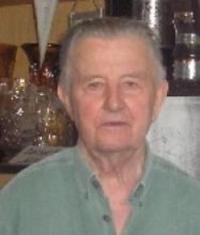The town was empty, the town was burnt down, looted, there were no people

Download image
Born in Lvov on 24 October 1926. Before World War II he completed five forms of a Polish primary school, then, for a year he went to a Russian school. After the Germans’ entry, in 1942, he started working on the railway as an apprentice. When the Germans were running away from Lvov, Michał Klemen’s family went to Krakow in fear of the Soviets’ entry and transportation to Siberia. After the occupation of Krakow by the Red Army Michał Klemens worked on the railway; in March 1945, he went to the “Regained Territories” with the entire transport of railwaymen from Lvov, first to Poznań, and then to Krzyż. In Krzyż, he was sent to work at starting the operation of a hydroelectric power station in Kamienna, 23 km away from Krzyż. From 1947 he worked on the railway in Krzyż; he retired in 1988. He is Vice President of the “Drawa” Angling Union in Krzyż. He lives in Krzyż.
